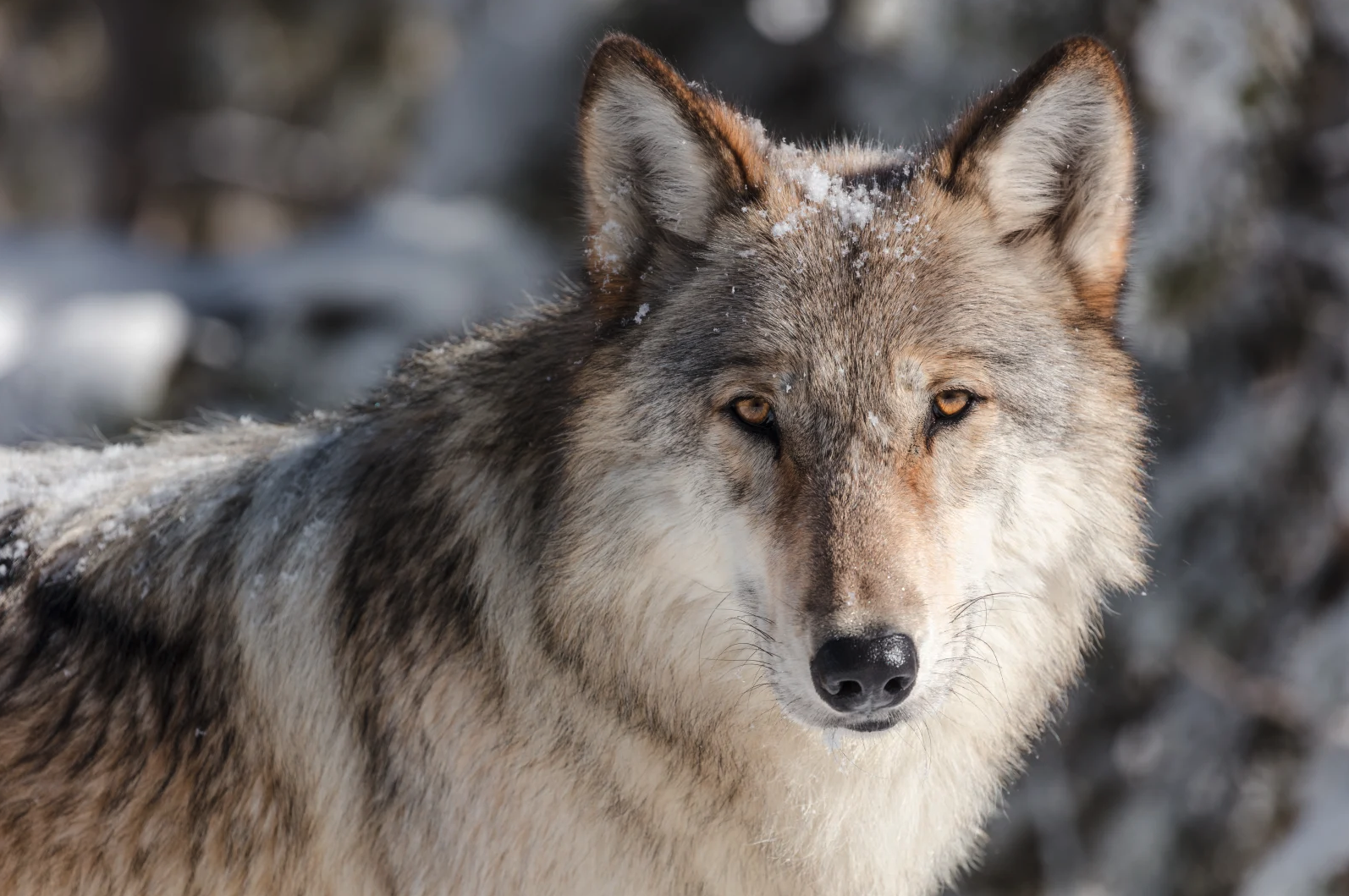
Jacob Frank/NPS

Audio By Carbonatix
Colorado Parks and Wildlife is currently preparing for a second release of wolves into the state as part of a voter-spurred species reintroduction effort – but some who don’t agree with the reintroduction have found a new way to try to stop the project.
On January 3, Colorado Advocates for Smart Wolf Policy submitted a draft statutory proposition to the Colorado Legislative Council that, if ultimately approved by voters, would repeal the law that Coloradans passed in 2020 to require wolf reintroduction in the state.
“It just became glaringly clear to me and to thousands of other people in Colorado that this law was just not working for many stakeholders in the state,” says Patrick Davis, campaign manager for the initiative. “This law is bad for ranchers, farmers and rural communities in Colorado. It’s bad for the taxpayers. It’s bad for the hunters and sportsmen and the small businesses that support these rural communities.”
Representatives for the proposition are Stan VanderWerf of El Paso County and Spencer Thomas of Garfield County. Once the measure passes the State Title Board, Colorado Advocates for Smart Wolf Policy will work as an independent expenditure committee supporting the measure.
Gray wolves are being reintroduced to Colorado because voters passed Proposition 114 in November 2020, directing CPW to begin reintroducing wolves by the end of 2023 and to continue those efforts until a self-sustaining population of wolves exists in Colorado.
Wolf advocates pushed the ballot measure after giving up on the idea that the federal government would take on the project, something that had been expected for years but never happened. A majority of those who voted for the measure were from Colorado’s Front Range; most of those against were from rural areas and the Western Slope.
Because CPW anticipated that agricultural producers wouldn’t be happy with wolf reintroduction, the agency assembled a Technical Working Group of reintroduction and management experts, as well as a Stakeholder Advisory Group of people from various geographic areas that might be impacted by wolf reintroduction. Their efforts influenced the state’s final Wolf Restoration and Management Plan.
Should wolves harm livestock or cause other problems for agricultural producers, Colorado allows historically high dollar amounts for compensation, with state legislators passing bills to fund a wolf depredation compensation program and create a special wolf-themed license plate, the proceeds from which will go toward helping ranchers implement conflict prevention measures to protect their herds.
Still, many people in rural areas don’t think those efforts were enough, and signed a petition that will be heard by the CPW commission during its January 8-9 meeting asking the state to pause wolf reintroduction.
The proposed ballot measure would go even further: Rather than pause reintroduction, it would completely repeal the law requiring reintroduction. The wolves that have already been introduced wouldn’t have to be removed, but the program would be no more.
In its announcement of the ballot measure, Colorado Advocates for Smart Wolf Policy cited four reasons for the petition: economic harm to ranchers and livestock producers, rising grocery prices because of the higher costs for ranchers, resulting threats to food security and the farm-to-table movement in Colorado, and the protection of Western heritage.
“It gets us back to a point where we’re having a discussion with all of the stakeholders: the ranchers, the farmers, the small businesses, the rural communities, the economic development agencies around western and northern Colorado,” Davis says. “The end game of this initiative is to go back to the beginning, and let’s have a fresh start with all of the parties, including those that are interested in reintroducing wolves into Colorado.”
But those interested in reintroducing wolves aren’t buying what this group is selling. “It is a petty tantrum executed by an extremist faction of the livestock industry,” says Rob Edward, president of the Rocky Mountain Wolf Project, which was the driving force behind the 2020 ballot measure. “They apparently would rather spend millions trying to nullify the law than use that money to actually help ranchers adapt to having an important carnivore back on the land. Just think what they could do if they jumped into the coexistence game with all that cash.”
Supporters raised $2.4 million to pass Proposition 114, while the opposition spent $1.06 million. CPW only used $1.57 million on wolf reintroduction in the 2023-2024 fiscal year out of an allocated $2.1 million, so this new ballot initiative could cost more than the current reintroduction project.
To get on the ballot, though, the proponents will have to pass muster with the Legislative Council Staff and the State Title Board to ensure that the initiative is clear. From there, they’ll have to get signatures equal to 5 percent of the total votes cast in the last race for Colorado Secretary of State, which means they’ll need 124,238 legitimate signatures in order to get on the ballot in 2026.
An initial public hearing with the Legislative Council staff is set for 10 a.m. January 17.